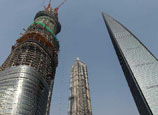
Five Guangdong officials had been dismissed and investigated in the past 40 days, echoing the anti-corruption storm since the 18th CPC National Congress. At least three of them were accused of illegally obtaining a huge number of assets and bribe-taking.
Requiring party and government officials to report and disclose their assets has become a constant social request as it is seen as a means to curb corruption. However, curbing graft cannot rely solely on a single policy, say experts.
Xu Xianglin, professor of the School of Government with Peking University, told the Global Times Sunday that asset disclosure requires an institutional guarantee and detailed practicality. It is essential to set up baselines on the subjects, conditions and scopes of the disclosure, as well as strong inspection, investigation and judicial measures to verify the validity of the published information.
"It would be best to disclose assets of officials who are newly appointed, especially those high-level, competitive posts," said Xu.
Xu also said that measures should also be taken to protect necessary privacy of the officials and their families.
According to Guangdong's Five-Year plan, the pilot programs will be completed and evaluated before 2014.
Internal annual asset reports of lower level officials have been required by the State Council since 2010, but the information is not released to the public.















 Spectacular images of erupting volcanoes
Spectacular images of erupting volcanoes


![]()
